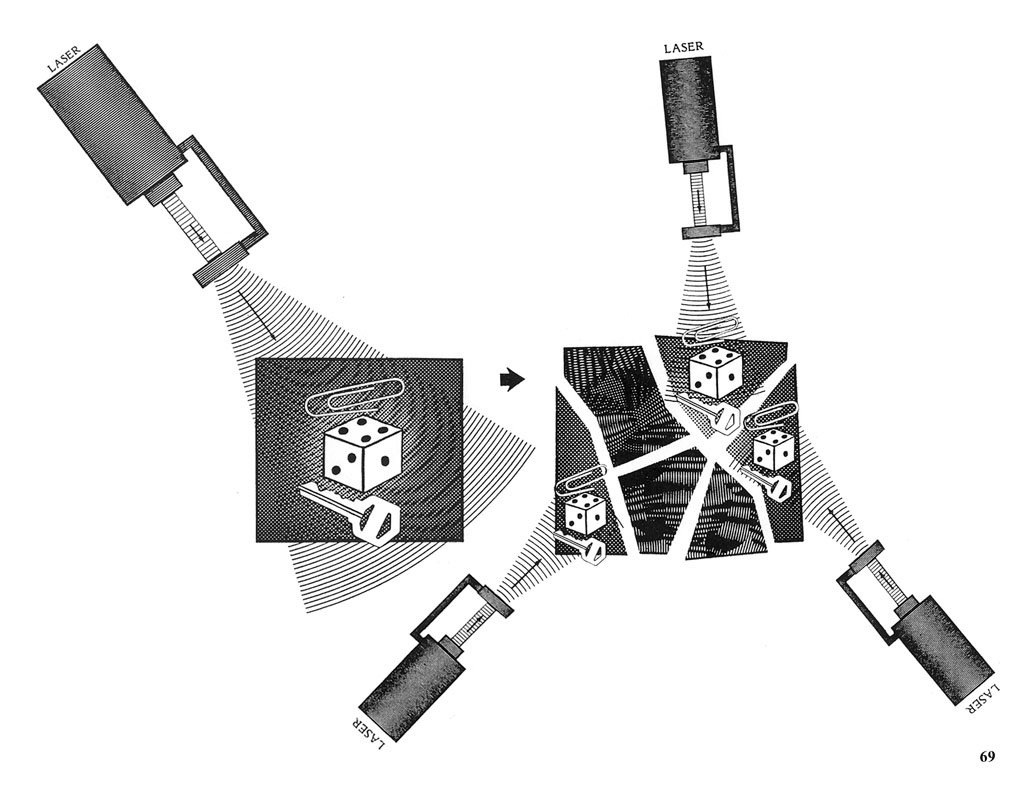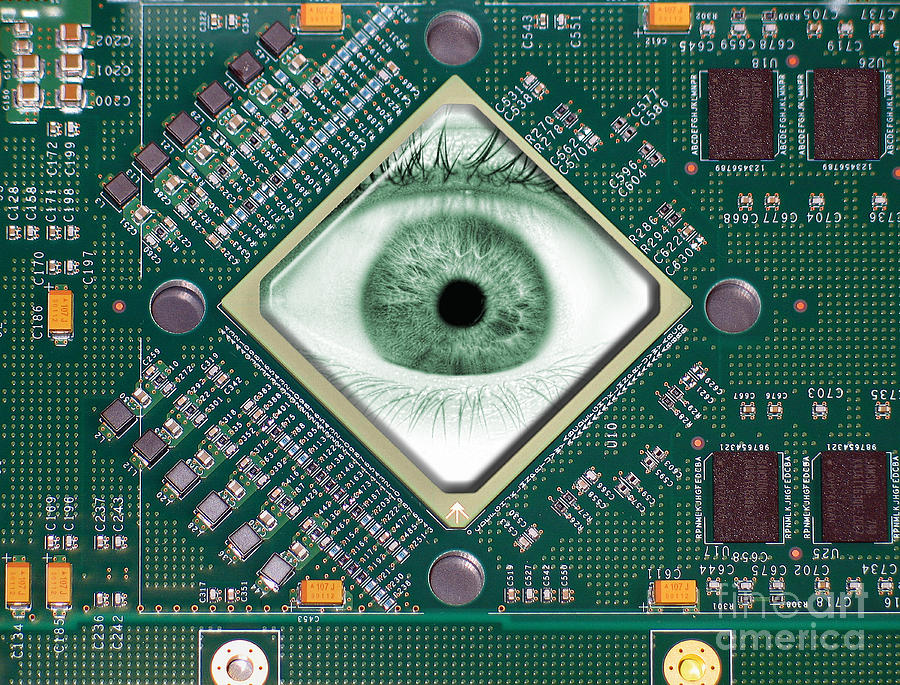Trajk Logik wrote: ↑Mon Apr 08, 2024 2:59 pm
seeds wrote: ↑Sun Apr 07, 2024 8:21 pm
Trajk Logik wrote: ↑Sun Apr 07, 2024 5:31 pm
I think you are conflating "universe" with "mind". They are not the same thing.
I am not erroneously conflating the two if it is indeed possible that the universe is, itself, the mind of a higher consciousness.
Wait, computers can't be conscious but a universe can?

Because I am suggesting that the universe is the literal mind of a higher consciousness, then that would imply that the totality of the phenomenal features of the universe (i.e., all physical matter) can be thought of as being
"alive" because, logically, all universal matter would be thoroughly imbued (saturated) with the life essence of the higher Being.
And that would be similar to how the totality of your own thoughts and dreams are
"alive" because they are thoroughly imbued with your own life essence.
However, in the same way that the multifarious features of your thoughts and dreams cannot be considered as being conscious, in and of themselves,...
...likewise, neither can the multifarious (material) features of the universe (such as suns, and planets, and moons, and cars, and dirt, etc.,) be considered as being conscious.
Again, they are alive because they are imbued (saturated) with the essence of life, but they are not conscious.
The point is (and with a few obvious exceptions) it is the self-aware
"I Am-ness/Agent/Soul/Creator" of the universe that is conscious, not the contents of the universe writ large.
Trajk Logik wrote: ↑Mon Apr 08, 2024 2:59 pm
seeds wrote: ↑Sun Apr 07, 2024 8:21 pm
Trajk Logik wrote: ↑Sun Apr 07, 2024 5:31 pm
Minds are part of the universe, not separate from the universe.
Our minds are as separate from this universe as they are from each other.
I am a separate mind, you are a separate mind, and the universe is a separate mind (God's mind). Indeed, I suggest that our minds are like "parallel universes" relative to each other.
Then what do you mean by "separate"? Separate in what way? If we are causally linked, we are not separate. We are part of the same reality.
Not that you are obligated to accept any of it, but, again, I explained all of that in my YouTube video -
https://youtu.be/bVbpHy4nncA
However, just as a simple example of how our minds are truly separate from one another, I'm thinking of a number between one and one million, if you
cannot tell me precisely what that number is,...
(a number, btw, which includes a decimal point followed by several digits)
...then it demonstrates the autonomy of the interior reality of our minds.
The point is that it is obvious that we cannot
directly see, or feel, or hear, or smell or taste each other's personal thoughts and dreams (not even with fMRI's nor any other similar types of machines).
Trajk Logik wrote: ↑Mon Apr 08, 2024 2:59 pm
Not only that, but if we are separate then how is your knowledge and understanding going to be useful to me if we live in different universes? There would be no reason to communicate or inform others about your experiences because they would be irrelevant in my own universe. Communication only makes sense, and is only useful, if we live in the same reality and are talking about the same reality.
As of this moment, because of the circumstances of how our minds were awakened into existence, we humans are
all momentarily held within the
"womb-like" reality of just this one universe.
Therefore (and yes, I know it sounds crazy), instead of thinking that we are going to
"live-in" different or separate universes, it is more accurate to think that we (our minds) are going to
"be" separate universes.
The beauty of this concept is that even though we will each be able to create our own autonomous universe out of the living fabric of our very own being (just as God has done),...
...we are
all still going to be together in that higher context of reality, with the ability of still being able to communicate with each other, communing and sharing ideas in some way that is unfathomable to us from our present perspective (just guessing, but probably something more telepathic in nature).
And when I say
"all," I mean every human consciousness who has ever been awakened into existence since the earth was formed, will be there with us.
And this would even extend to any non-human beings throughout the entire universe, for you don't need to be human to qualify as being the literal
"offspring" of the Creator of this universe, no, you just need to be at a certain level of consciousness.
Indeed, the outer facades of the
"Ultimate Seeds" are not limited to the human form.
I can get even crazier with all of this by suggesting that this process has probably been going on as far back as eternity itself, which means that we could be set amidst a literal infinity of our
"cosmic siblings" who have been alive in that higher context of reality, basically forever.
I mean, what do we think the concept of "Eternal Life" means?
Trajk Logik wrote: ↑Sun Apr 07, 2024 5:31 pm
This is why our minds can interact here on this forum, because they are part of the same universe.
seeds wrote: ↑Sun Apr 07, 2024 8:21 pm
We can interact on this forum because the aforementioned
"interface" of our bodies and brains (which are indeed a part of this universe) place us (our minds) in the same spatial arena of God's mind.
Trajk Logik wrote: ↑Mon Apr 08, 2024 2:59 pm
Then we are not separate because we are all connected. Again, you're going to need to define your use of "separate".
As I explained in the video, our bodies are connected to each other within the context of this universe because they are composed of an informationally-based (holographic-like) substance that, at its most fundamental level, is superpositionally entangled with everything else throughout the universe.
And that would be metaphorically similar to how the information that underpins the three objects in the laser hologram...

...is entangled (in a state of interpenetrating
"oneness"), as is witnessed in the broken pieces of the holographic plate in the right-hand side of the illustration.
Well, in contrast to that, I suggest that the substance from which our minds and souls are constructed is not entangled with the fabric of matter in the same way that the fabric of matter is entangled with itself. And it therefore renders our minds separate (and separable) from the matter in which they were conceived.
This is, of course, loosely related to the reason why there exists the perennial issue of the so-called
"mind/body problem."
Trajk Logik wrote: ↑Mon Apr 08, 2024 2:59 pm
seeds wrote: ↑Sun Apr 07, 2024 8:21 pm
Trajk Logik wrote: ↑Sun Apr 07, 2024 5:31 pm
All three items are physical.
Yeah, but only two of those items are being presented as "seeds" of something...
Do you think a physical computer has the same purpose as that which is implied in a physical seed? - something that is destined to yield-forth a highly specific lifeform?
How do we know that computers are not the "seeds" of a highly evolved life form in the distant future? How do we know that the purpose of the universe isn't for humans, but for "artificial" life and humans are just a means to an end? Humans are just as much a part of the natural selective process as plate tectonics is and climate change is. You're ideas are anthropocentric.
Well, if the Creator of this universe wants to eventually use computers to be the physiological means through-which to conceive and awaken his (her/its) own literal and eternal offspring into existence, then perhaps that's a possibility.
However, why would he (she/it) want to do that, when the goal is already being achieved via this process?...

Clearly, because it is obvious that you are a hardcore materialist/nihilist who holds no belief in the possibility of our lives continuing on beyond death, you are not interested in fanciful speculations about the afterlife.
However, just for funzies, will the self-aware consciousness that you assume will allegedly live amidst the circuits and diodes of the innards of some future computer....

...have a gender?
Likewise, if it is possible that we do indeed continue on in some higher context of reality after death, will all of your proposed computer-based lifeforms simply die and awaken into that higher context of reality every time some hapless cleaning lady (thinking it's her vacuum cord) accidently pulls the wrong plug, or there is a power outage?
So many questions....so many questions...


_______








